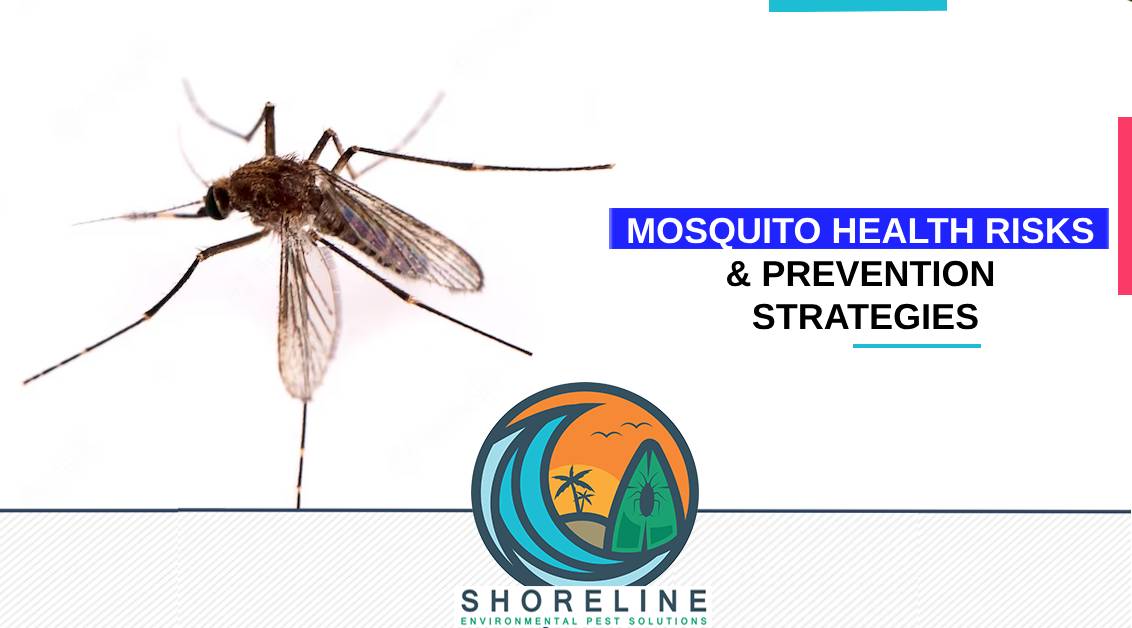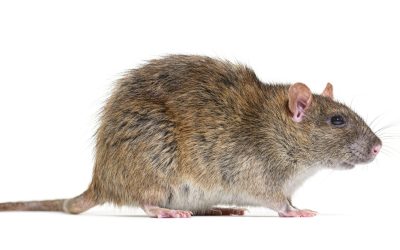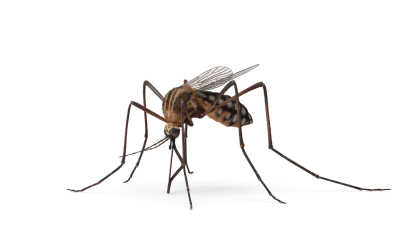Mosquitoes are not just annoying insects; they can pose significant health risks to humans. Understanding the impact of mosquitoes and implementing effective prevention strategies is crucial for safeguarding our well-being. In this blog post, we will explore the diseases transmitted by mosquitoes, factors affecting mosquito populations, and actionable prevention strategies to minimize mosquito-borne conditions.
The Health Risks Associated with Mosquitoes
Mosquitoes transmit several diseases that can have severe consequences for human health. Let’s take a closer look at some of the most prominent mosquito-borne diseases:
Malaria:
Malaria is a life-threatening disease caused by the Plasmodium parasite, transmitted to humans through the bites of infected mosquitoes. It affects millions of people worldwide, particularly in tropical and subtropical regions.
Symptoms of malaria include high fever, chills, headache, and flu-like symptoms. Without proper treatment, malaria can lead to complications and, in severe cases, even death.
Dengue Fever:
Dengue fever is a viral disease transmitted by the Aedes mosquito. It is prevalent in tropical and subtropical regions, and its incidence has increased in recent years.
Symptoms of dengue fever include severe headache, joint and muscle pain, rash, and high fever. In extreme cases, it can progress to dengue hemorrhagic fever or dengue shock syndrome, which can be life-threatening.
Zika Virus:
The Zika virus gained international attention during the outbreak in 2015-2016. The Aedes mosquito primarily transmits it but can also be sexually transmitted.
Symptoms of Zika virus infection include fever, rash, joint pain, and conjunctivitis. The link between Zika virus infection during pregnancy and congenital disabilities in newborns is particularly concerning.
West Nile Virus:
West Nile virus is transmitted to humans primarily through the bites of infected mosquitoes, particularly the Culex species.
Most people infected with West Nile virus do not develop any symptoms, but in some cases, it can cause mild to severe illness. Severe cases can lead to neurological complications such as encephalitis or meningitis.
Chikungunya:
Chikungunya is a viral disease transmitted to humans by the Aedes mosquito. It causes fever, severe joint pain, muscle pain, headache, and rash. While Chikungunya is rarely fatal, the joint pain can be debilitating and persist for months or even years.
Factors Affecting Mosquito Populations
Several factors contribute to the proliferation of mosquito populations. Understanding these factors can help in devising effective prevention strategies. Here are the key factors to consider:
Climate and Temperature:
Mosquitoes are susceptible to environmental conditions, especially temperature and humidity. Warmer climates with stagnant water sources provide ideal breeding grounds for mosquitoes. Climate change can influence the distribution and behavior of mosquitoes, potentially expanding their habitats and increasing the risk of mosquito-borne diseases.
Water Sources and Breeding Habitats:
Mosquitoes require standing water to lay their eggs and complete their life cycle. Common breeding sites include stagnant water in discarded tires, flower pots, gutters, and birdbaths. Removing or treating these sources can significantly reduce mosquito populations.
Urbanization and Human Activities:
Urban areas with a dense human population and inadequate waste management can provide favorable conditions for mosquito breeding. Pooled water from improperly maintained drainage systems, construction sites, and discarded containers can become breeding grounds for mosquitoes. Addressing these factors through proper waste management and community involvement is essential for mosquito control.
Prevention Strategies to Minimize Mosquito-Borne Diseases
Preventing mosquito-borne diseases requires a multi-faceted approach that combines personal protection measures, environmental management, and community efforts. Here are some effective prevention strategies:
Personal Protection Measures:
To reduce the risk of mosquito bites, individuals can take the following measures:
- Use mosquito repellents: Apply EPA-approved mosquito repellents containing ingredients such as DEET, picaridin, or oil of lemon eucalyptus.
- Wear protective clothing: Cover exposed skin with long-sleeved shirts, long pants, socks, and shoes.
- Install window screens: Use window screens and bed nets to create a physical barrier between mosquitoes and yourself.
- Time outdoor activities wisely: Avoid being outdoors during peak mosquito activity times, such as dawn and dusk.
Environmental Management:
Environmental management plays a crucial role in reducing mosquito populations. Here are some critical steps:
- Eliminate standing water: Regularly empty, clean, or cover containers that can hold water, such as flower pots, buckets, and birdbaths.
- Maintain proper drainage: Ensure that gutters and downspouts are clear of debris and functioning properly.
- Minimize outdoor water accumulation: Avoid overwatering plants and address any drainage issues in your yard.
Advances in Mosquito Control and Disease Prevention
Mosquito control and disease prevention advancements offer new hope in combating mosquito-borne diseases. Here are some notable developments:
Mosquito Traps and Surveillance Systems:
Innovative mosquito traps and surveillance systems help monitor mosquito populations, identify disease vectors, and guide targeted control interventions. These tools aid in understanding mosquito behavior and assist in implementing effective control measures.
Biocontrol Methods:
Biocontrol methods use natural predators, such as fish, dragonflies, or bacteria, to target mosquito larvae or adults. Introducing these natural enemies of mosquitoes can help control mosquito populations without relying heavily on chemical insecticides.
Hiring a professional mosquito removal service
Hiring a professional mosquito removal service can effectively mitigate the health risks associated with mosquitoes. These experts have the knowledge and tools to identify breeding sites, conduct thorough inspections, and implement targeted control measures.
Professional mosquito removal services often use various methods to address mosquito infestations. This may include larvicide treatments, adult mosquito control strategies, and regular monitoring to ensure long-term effectiveness.
By engaging the services of professionals, you can have peace of mind knowing that your home or outdoor spaces are protected from disease-carrying mosquitoes.
In conclusion, mosquitoes pose significant health risks by transmitting various diseases. Understanding these risks and implementing effective prevention strategies are essential for protecting ourselves and our communities. By adopting personal protection measures, practicing environmental management, and supporting community-wide efforts, we can minimize the impact of mosquito-borne diseases. Additionally, advancements in mosquito control technologies provide hope for more effective disease prevention in the future. Let’s work together to combat mosquitoes and safeguard our health and well-being.
Remember, prevention is critical when it comes to mosquito-borne diseases. Stay informed, take necessary precautions, and encourage others to join the fight against mosquitoes.





0 Comments